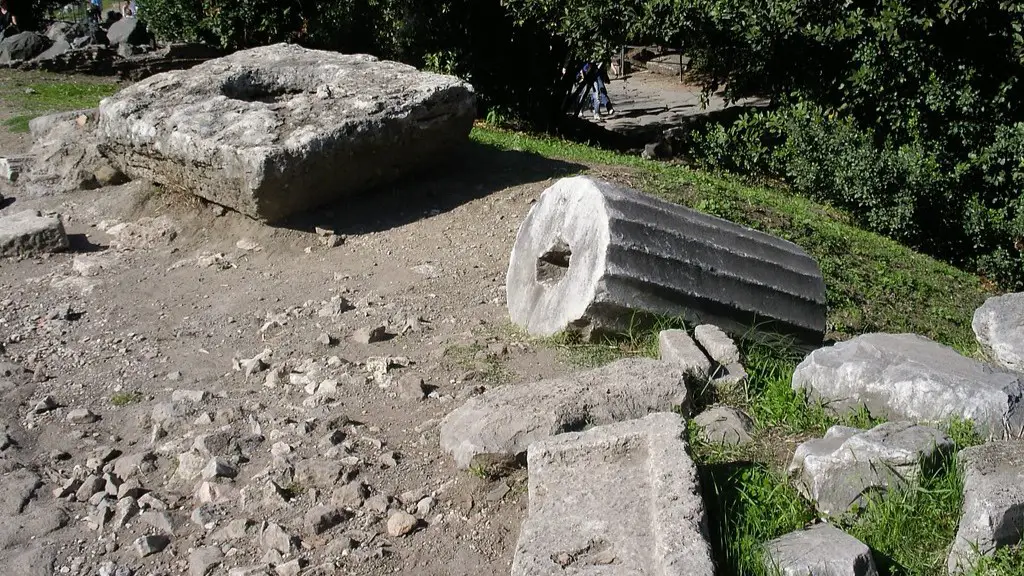Women in Ancient Rome
When thinking of Ancient Rome, a patriarchal society is often the first thought that comes to mind; one in which women had minimal rights and acceptance within the formal economy and law.
This concept has been largely accepted by academic researchers; however, recent discoveries and literature have uncovered a greater societal role women in Ancient Rome filled. Women had far greater rights and freedoms than most people imagine, especially compared to other societies of the era.
Historians such as Joshel, McClure, and Reedy have researched the place women held in society and economy. They have found that, like men, women owned land, and could use it for investment and for tributes to pay for public games or to commemorate their dead. Female slaves and freedwomen could even own households.
In terms of the law, the Twelve Tables provided some limited rights to women. They could own property, sue in court, and even work outside of their home in certain professions–trades and shops, for example. Marriage also allowed women to own property, despite the legal authority that husbands had over their wives.
In addition to the legal opportunities available, women had access to roles in religious life. They could serve as priestesses and, according to certain sources, perform certain spells comparable to a male’s. In addition, women could enter the Aristocracy, with the daughter of senator Tiberius Claudius Nero once marrying, then divorcing, the leader of Rome.
At the same time, there were real and deep-rooted gender divisions in Rome that drastically affected how women were treated. Patriarchal offices, such as the position of consul and praetor, were not available for women – nor were most priesthoods. Women were also subordinate to their husbands, as laws such as the Lex Julia de Adulteriis established.
Finally, while they had rights to property and exchanges that could be monetized, women could not participate in politics. They could not vote, and could not hold office. This was a major factor in the male dominance of Roman politics during the time, and meant that women were often overlooked or ignored when it came to major decisions.
Rights of Women in Ancient Rome
In bygone eras, such as Ancient Rome, the rights of women were often overlooked and ignored, with many men possessing unequivocally more power and freedoms than their female counterparts.
Yet, despite this fact, recent evidence suggests that women in Ancient Rome had access to a variety of legal, religious and economic rights that different countries of the time would not have allowed to women. Such rights include the ability to own property and receive inheritances, as well as the capacity to serve as priestesses.
Comparatively, more rights were extended to women in Rome. The Twelve Tables, commonly referred to as the first laws of Rome, granted a number of freedoms to women, such as the ability to own and conduct business on property, as well as sue in court.
In addition, women could even make significant social advancements in Ancient Rome, with some daughters of senators living up to the rank of consul. While this was rare, it was not impossible due to the relative freedoms afforded them. Indeed, some priestesses and advisor to emperors were women, displaying the recognition of female authority in official circles.
However, despite some rights granted to women by the law, a number of areas still retained gender norms, as many politics and priesthoods were not open to women. Furthermore, wives were largely considered subordinate to their husbands, and remained subject to the controlling authority of their husbands even upon marriage.
Social Norms Imposed on Women in Ancient Rome
Whilst ancient Rome offered more liberty to women compared to many other cultures and civilizations of the time, it was still a patriarchal society in which women were largely overlooked and considered subservient to their male counterparts.
For example, despite the Limited rights gifted by the Twelve Tables and the Lex Julia, women could not participate in politics, meaning that their entitlement in terms of policy decisions and public offices was minimal. Furthermore, women could not hold most priesthoods or access certain lucrative business opportunities and occupations.
Wives further remained accountable and subject to their husbands’ legal authority and authority and discretion over property was held by their spouse. This disdain for female dignities was further cemented by the philosophy of many teachers, such as Cicero and Seneca, who maintained such inequitable views of women.
Consequently, such gender norms reflect in modern society today, as there still remains a substantial gender divide, with men often outperforming women in terms of salary and access to higher positions. This divide has been further affected by economic, social and racial differences, creating an almost insurmountable gap for some communities to bridge.
Therefore, women in Ancient Rome were far from equal to men, and although they could access certain rights and freedoms going beyond prescribed gender norms, these liberties were largely limited and did not reflect on their social standings or opinions they held.
Conclusion
Despite Ancient Rome being a deeply patriarchal society, it is clear that women were provided with certain rights and liberties. They had the opportunity to own property and make financial exchanges, as well as participate in certain forms of economic, legal and religious life.
However, it is also evident that women were subordinate to their male counterparts, as most public offices and priest offices were not open to women. Furthermore, Gender norms such as the legal dominance of husbands and the philosophy of Roman intellectuals further reinforced the subservient role of women.
Therefore, the situation of women in Ancient Rome was indeed complicated, but ultimately their rights and freedoms were far smaller than that of men, leaving them with limited opportunity for political and economic power.





